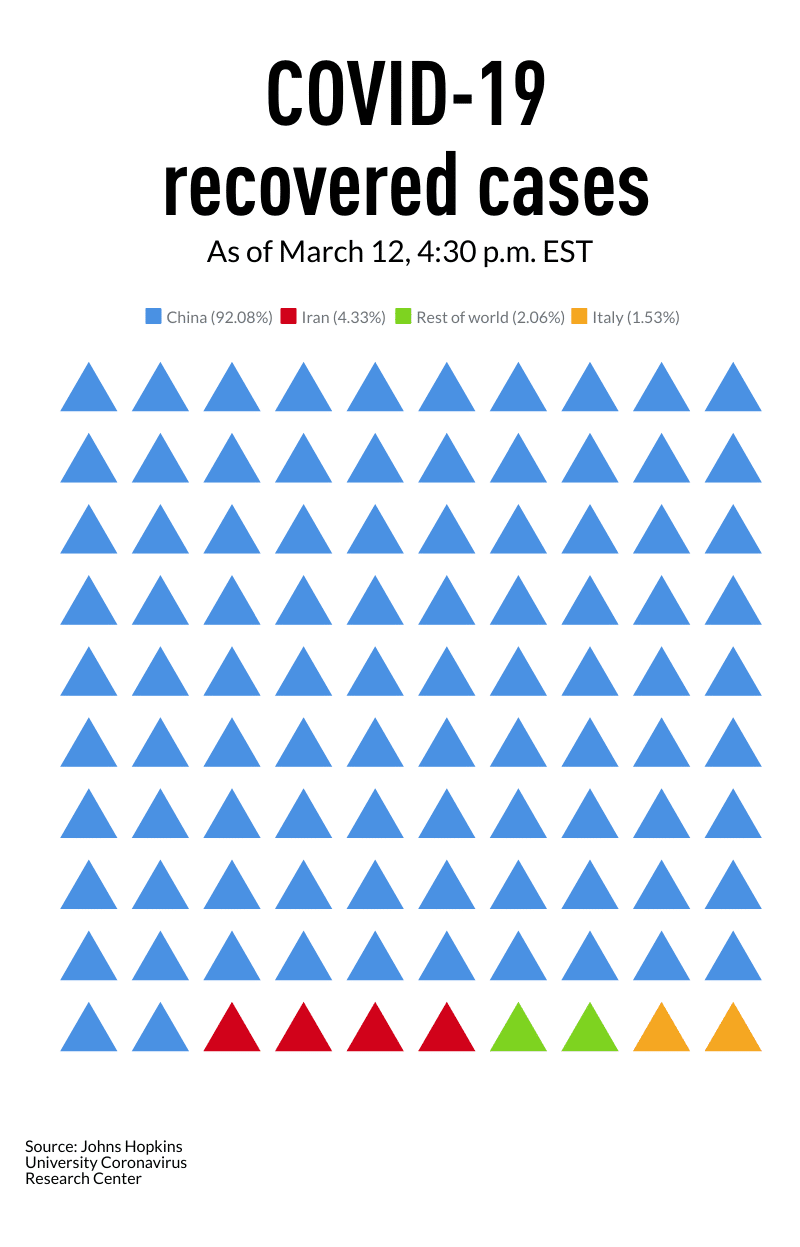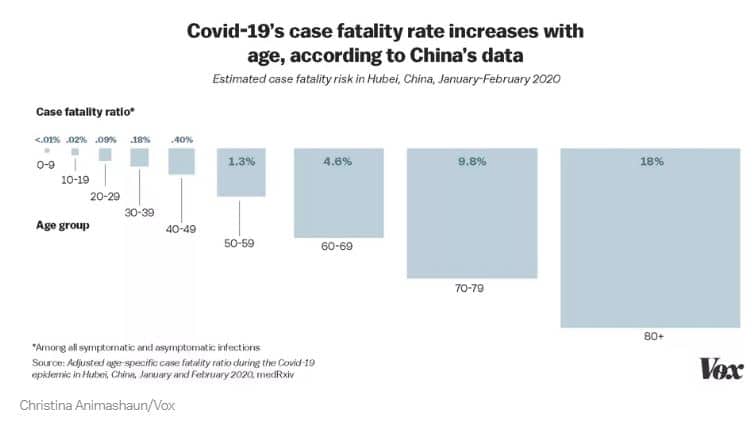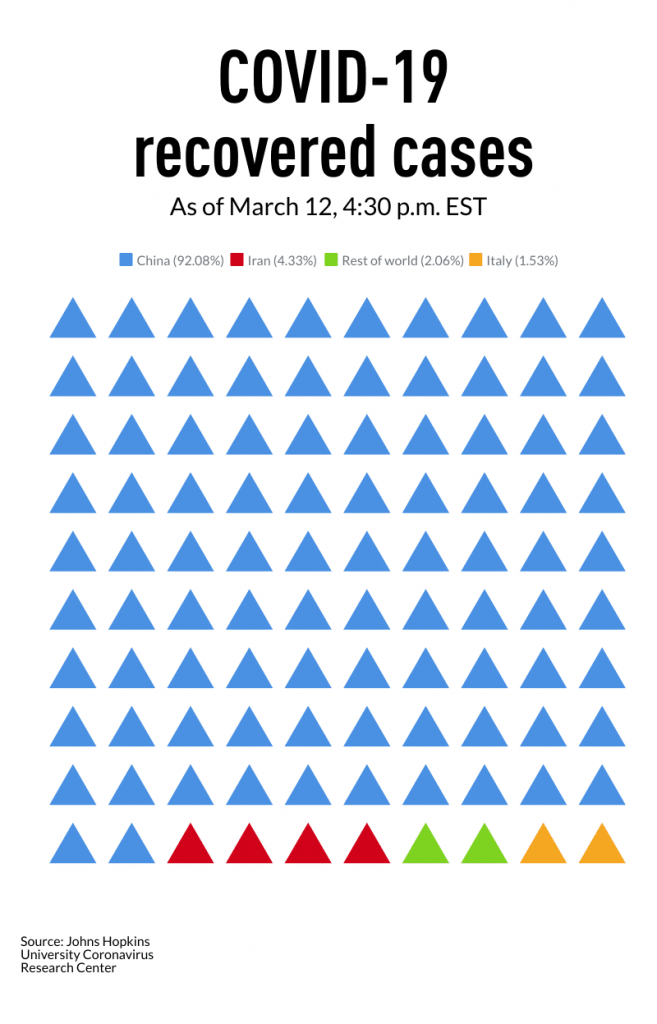If being a little worried can keep you safe from catching the highly contagious COVID-19, we recommend you to be so. At the same time, it’s not wise to panic either.
There are a few things you should know about the coronavirus which will help you stay safe and make better decisions if it does break out in Pakistan on a larger scale.
Most COVID-19 Patients Recover
The vast majority of people who test positive for COVID-19 fully recover. Of the 131,500 people infected worldwide, 68,324 have recovered and are leading normal, healthy lives.

According to the World Health Organization, of about 80,000 people who were infected with COVID-19 in China, more than 70% have already recovered and been discharged from hospitals.
In Pakistan too, one of the 21 COVID-19 patients has been declared virus-free and has been released from the hospital.
History’s First Controllable Pandemic
While the World Health Organization has been raising concerns over the elusive nature of the virus that makes it more contagious, as well as countries’ inaction to slow its spread, it has said that COVID-19 is the first pandemic history that can be controlled.
This bodes well for humanity because as opposed to the other epidemics that the world has seen – including Bubonic Plague, SARS, and MERS – COVID-19 is of a milder nature and thus more controllable. However, its infectious nature is what makes it more dangerous and success in containing it is directly dependent on how countries respond.
Recovery Depends on Severity of Disease
COVID-19 symptoms worsen in those who have a weak immune system or underlying health conditions. People of old age typically suffer more from COVID-19, as from any other disease, than the young and strong.
Italy’s data also shows that COVID-19 is dangerous for older people, particularly for those with heart, lung, and immunological conditions. Italy has one of the world’s oldest populations and recent data from the National Health Institute found that the average age of the 105 patients who died from the virus was 81.
China’s data also shows that the COVID-19 fatality rate increases with age.

While some recover in weeks, others can take more time depending on their bodily strength.
But we need to remember that with decisive, early action, we can prevent infections and slow down the spread of coronavirus.
Lowering Risk of Contracting COVID-19
The novel coronavirus is highly contagious. What makes it more so is its elusive nature where people who test positive can still be asymptomatic, making it hard to tell the sick from the healthy.
But there are ways to stay protected, and very basic ones. The CDC recommends the following everyday preventive actions practicing which will considerably lower your risk of contracting the disease.
- Avoid close contact with people who are sick.
- Stay home when you are sick, except to get medical care.
- Cover your coughs and sneezes with a tissue.
- Clean frequently touched surfaces and objects daily (e.g., tables, countertops, light switches, doorknobs, and cabinet handles) using regular household detergent and water.
- Wash your hands often with soap and water for at least 20 seconds, especially after going to the bathroom; before eating; and after blowing your nose, coughing, or sneezing. If soap and water are not readily available, use a hand sanitizer that contains at least 60% alcohol. Always wash your hands with soap and water if your hands are visibly dirty.
Together We Can Beat It
The virus has already spread to 127 countries and WHO has declared COVID-19 a pandemic. But, it’s only through care and collective responsibility that we can not only protect ourselves from the virus, but beat it too.
While the science world does its part finding a cure or a vaccine for the virus, we can ensure that we and all our loved ones follow the basic guidelines that the CDC, WHO, and local health authorities have issued. A careless approach in this regard will only strengthen the pandemic and add to the havoc that it is wreaking on societies and economies.

sildenafil price walmart